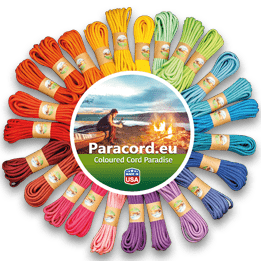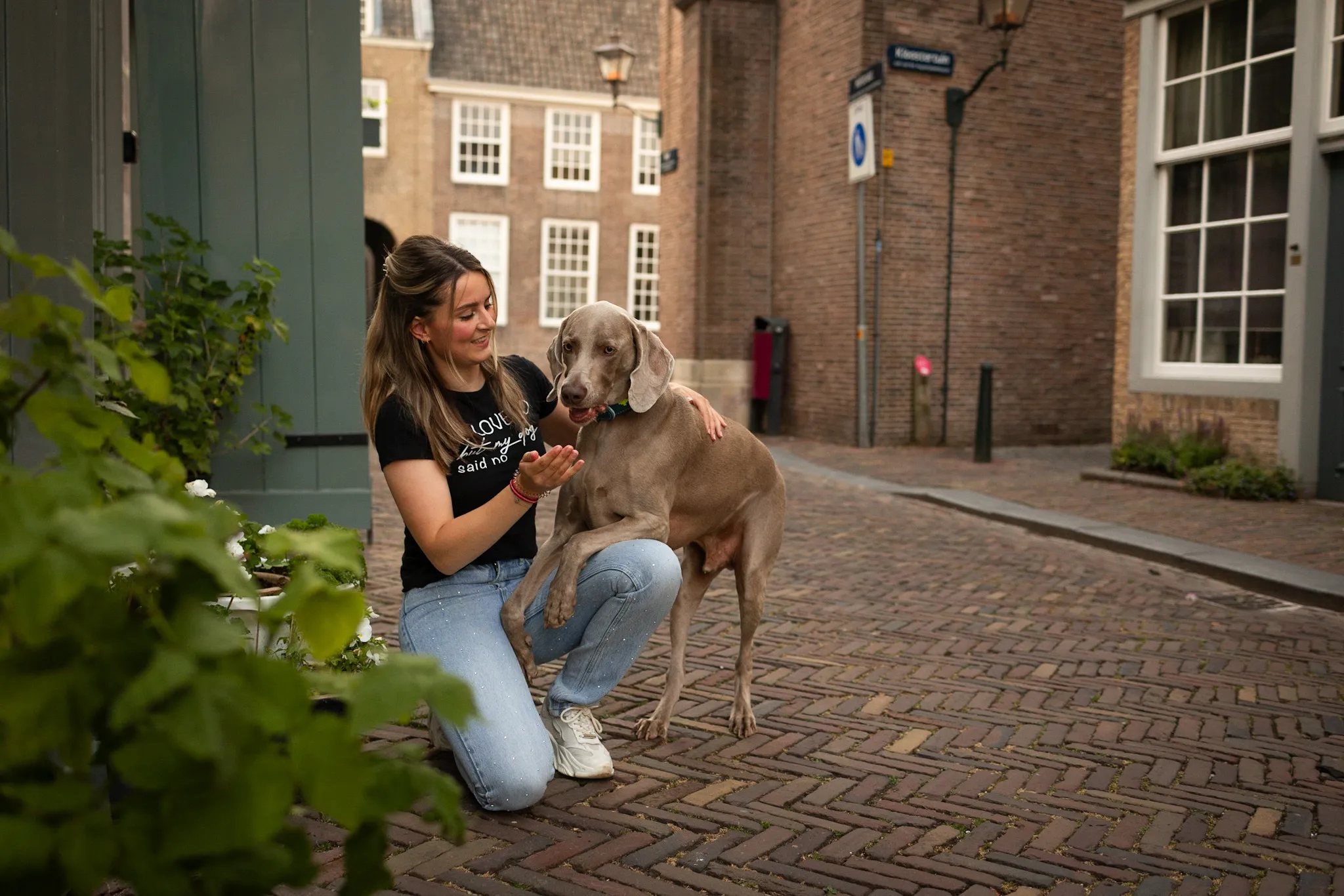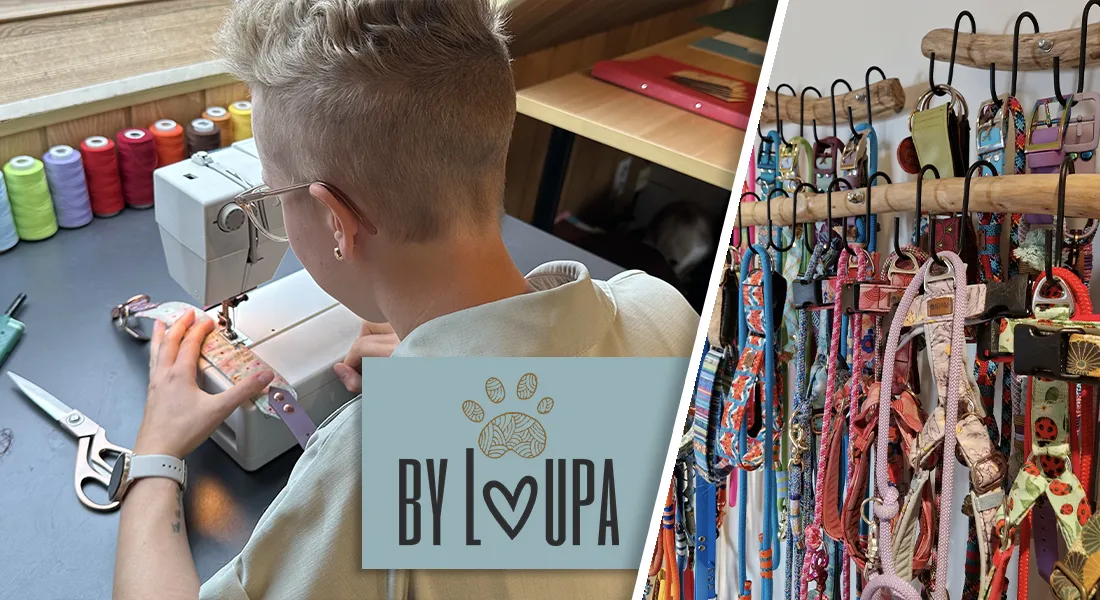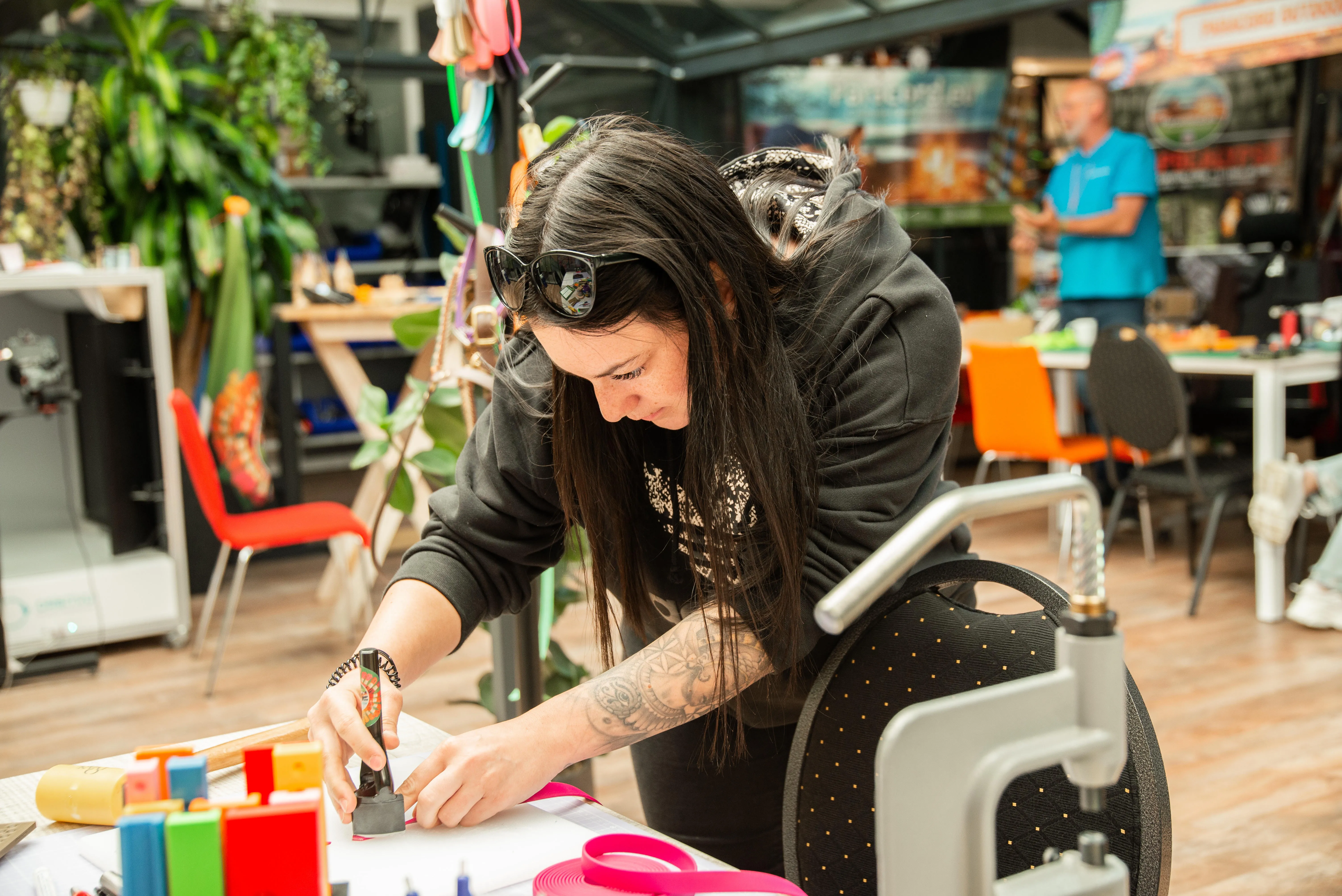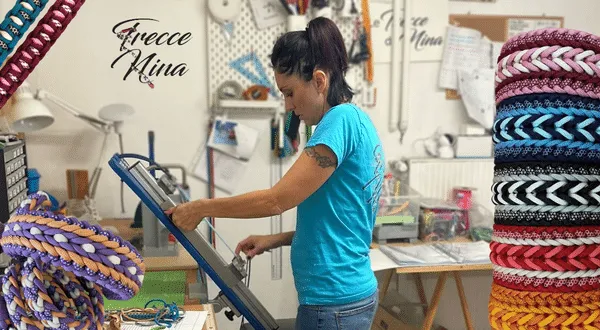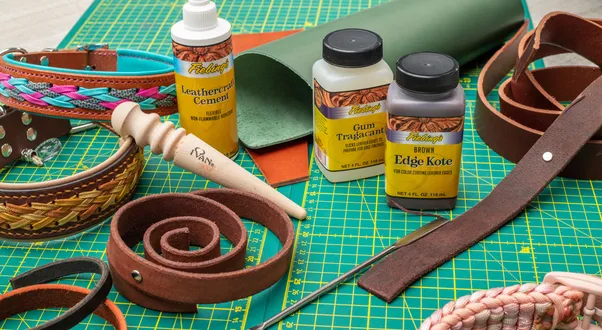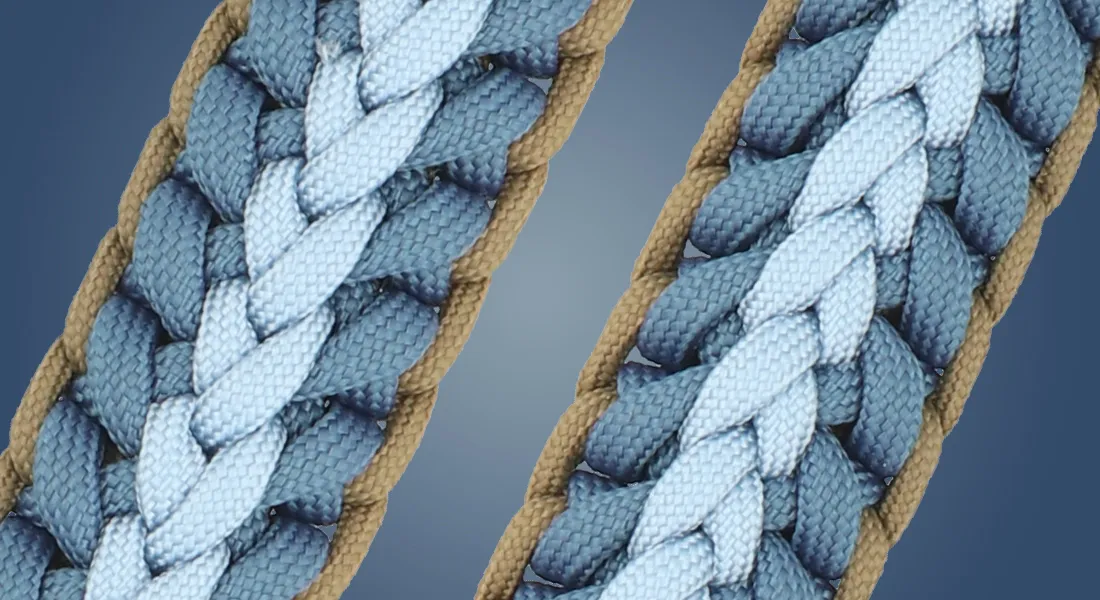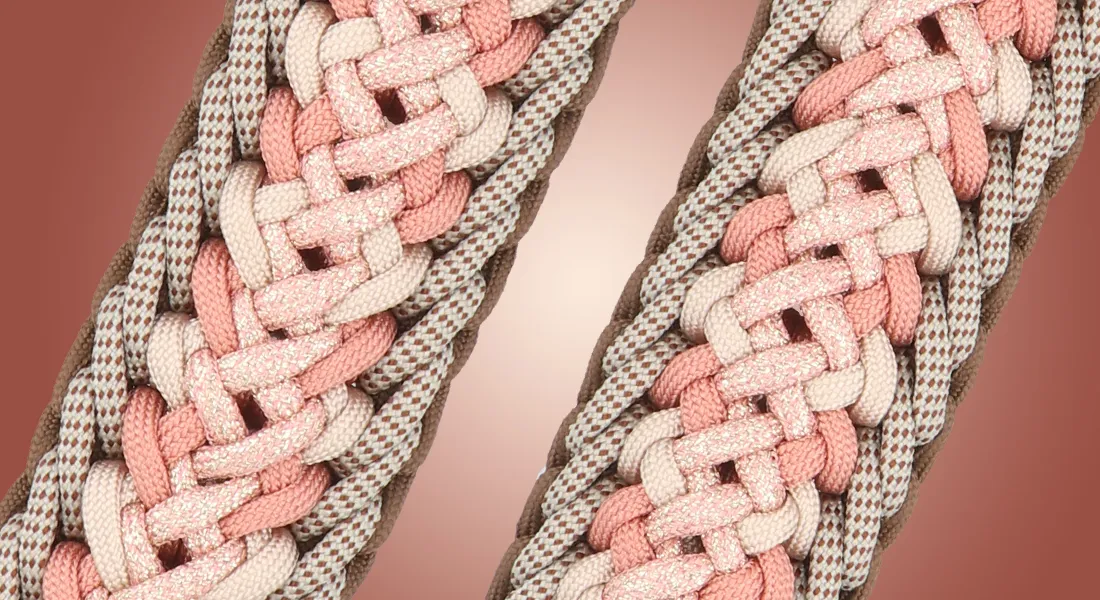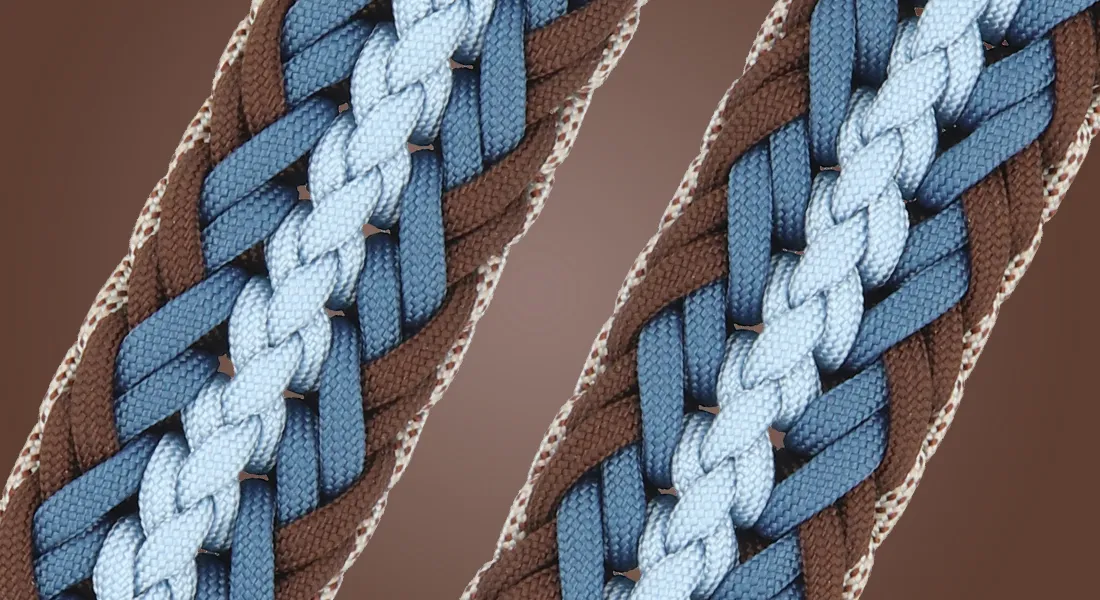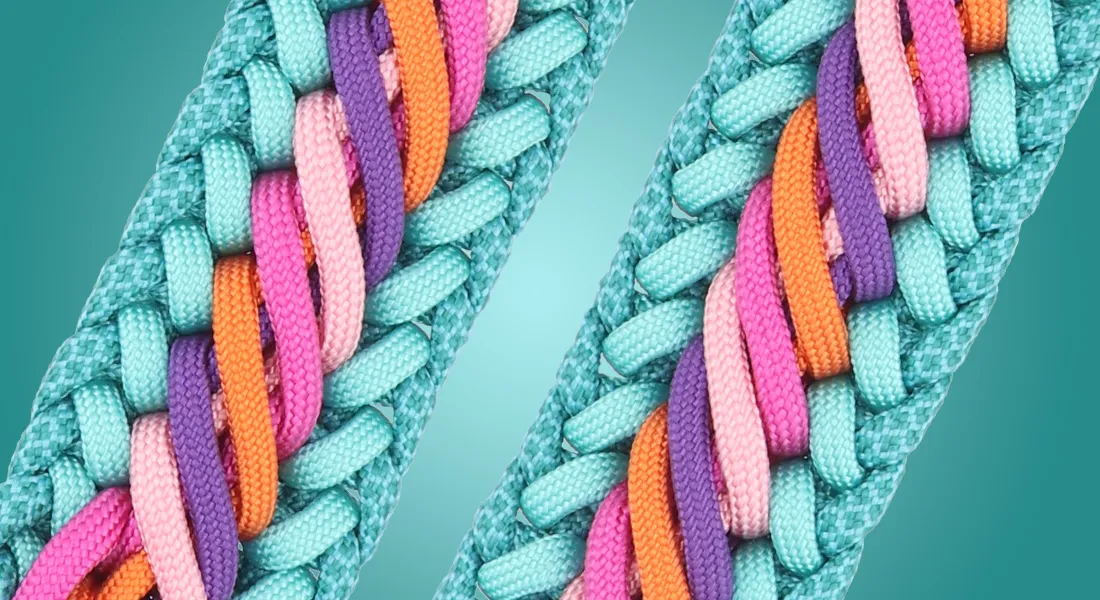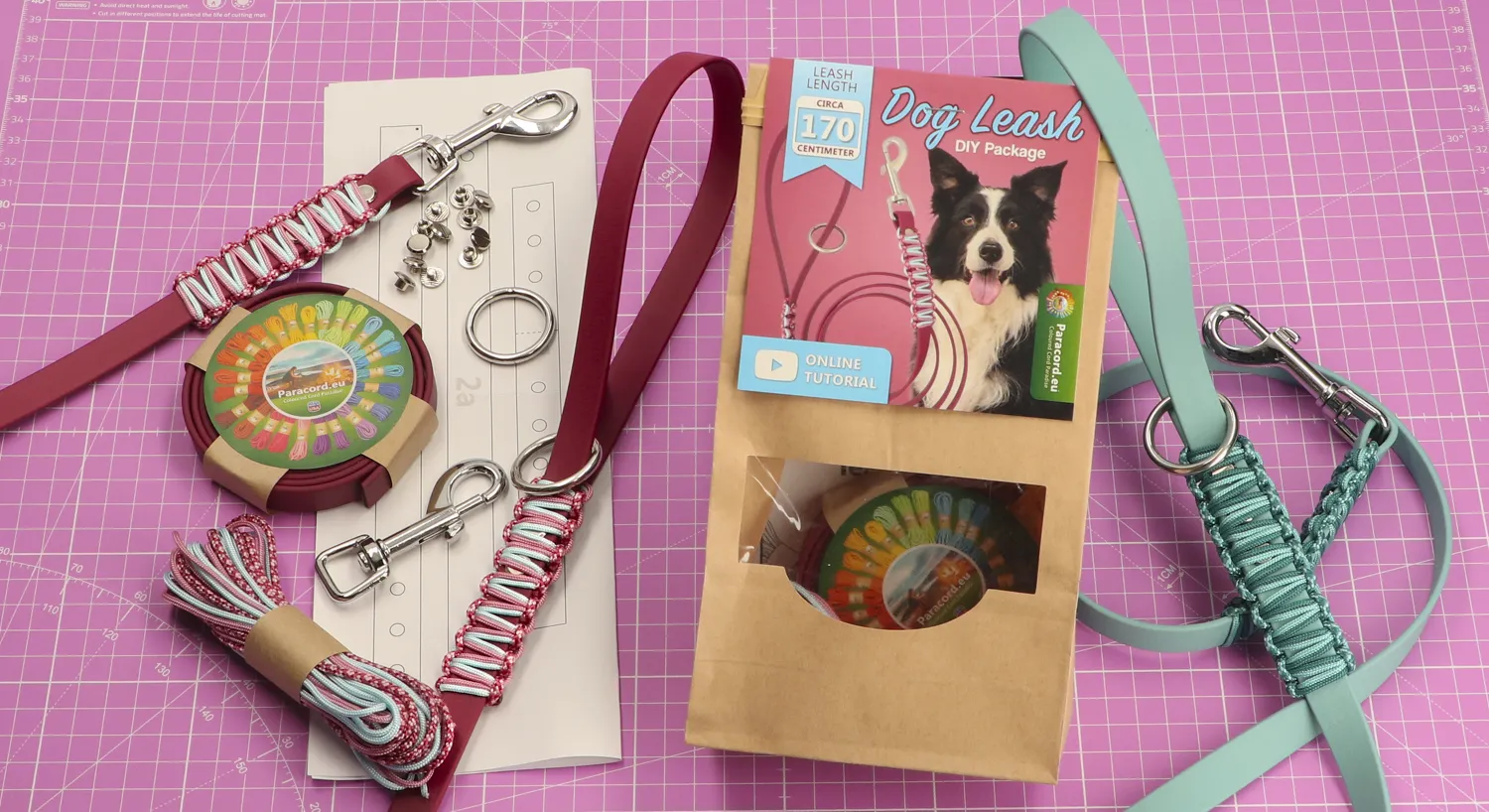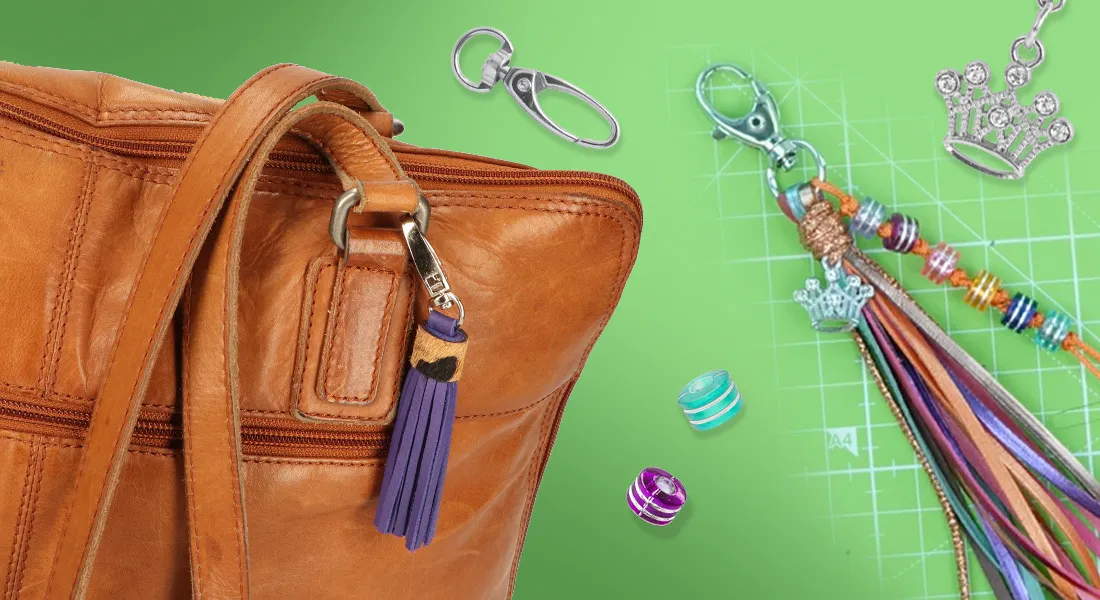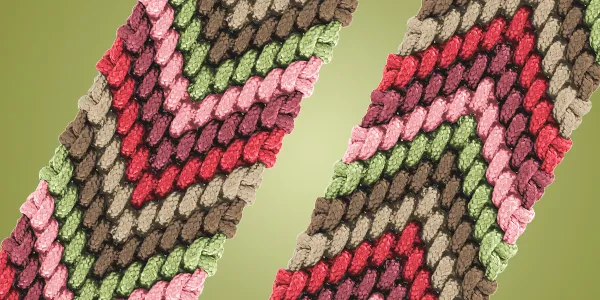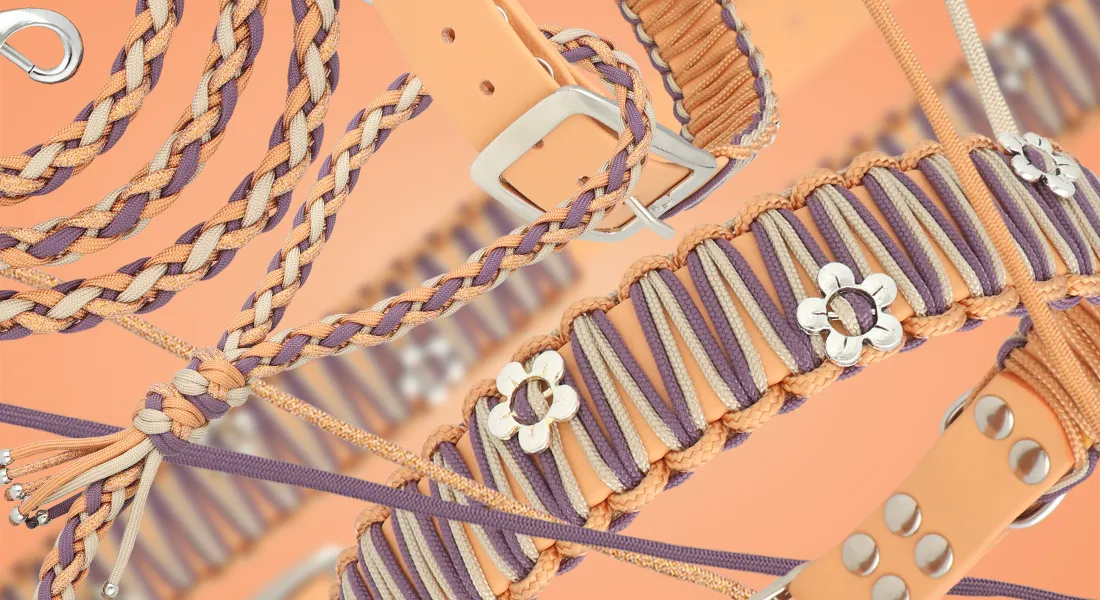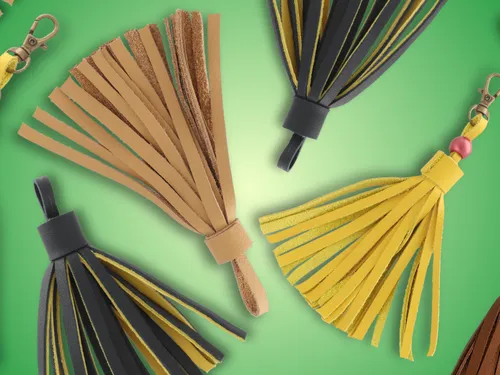Meet the man behind the Knotgames: Mathias Kruger
The Knotgames: the big worldwide paracord contest to showcase your skills and compete with other paracord lovers. This is the place where everyone comes together: from the outdoor people to the pet community to the sponsors of the Knotgames, like Paracord.eu. This year will be the sixth edition, organised by Mathias Kruger: “I want to build a community around paracord.”
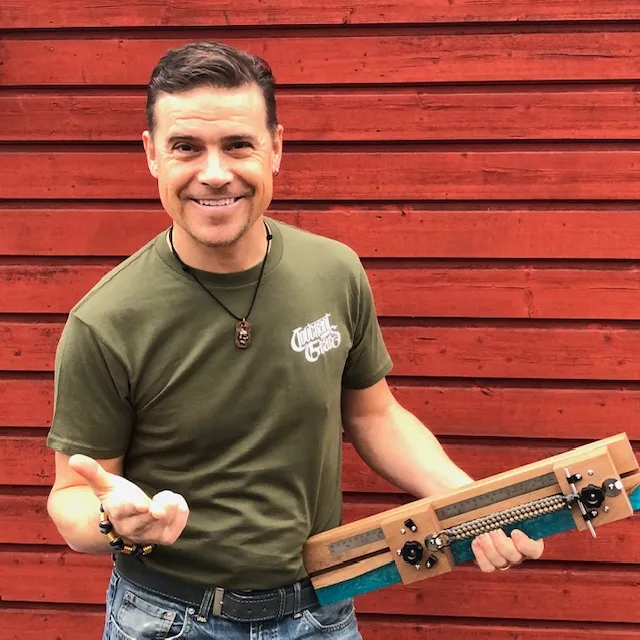 Mathias Kruger was born and raised in Sweden, but he is calling in from his office in Guatemala, where he works as a diplomat. He is living in Central America with his wife, two daughters, two Labradors and his African parrots. Mathias wears a white shirt, with the top button undone, an earring in his left ear and he smiles kindly. Between his meetings, travels and coffee breaks, he makes some time for this interview with Paracord.eu.
Mathias Kruger was born and raised in Sweden, but he is calling in from his office in Guatemala, where he works as a diplomat. He is living in Central America with his wife, two daughters, two Labradors and his African parrots. Mathias wears a white shirt, with the top button undone, an earring in his left ear and he smiles kindly. Between his meetings, travels and coffee breaks, he makes some time for this interview with Paracord.eu.
He is passionate about his job, but also really enjoys the time he spends on his paracord hobby. “Every day when I leave the office and come home, I do a few hours of paracord. I use it as an outlet of energy and creativity, to be able to relax from everyday work. You cannot watch tv and meanwhile make a complicated bracelet by routine. It is repetitive, but it does require focus. It is a good meditative activity.”
Introduction to paracord
Mathias started creating bags when he lived in Africa. “Since my family and I travelled a lot, I had an interest in bags. I wanted them to be functional and nice. My wife and I started developing leather bags ourselves, since leather and labour were very cheap in Ethiopia. After a while, we had two or three models of bags we could use and sell. However, the handles of the bags were still too weak and too thin in my opinion.”
“On a trip to Guatemala we went to an outdoor shop and that’s where I discovered paracord type 1,” he continues. “I learned how to do a cobra knot and knotted it over the handles of the bags, so they became more comfortable. I also used it for the zipper pull as an extra detail. To be honest, it wasn’t a big success from a business point of view, as the bags now became too expensive.”
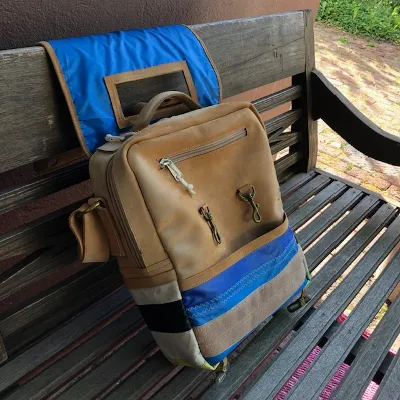
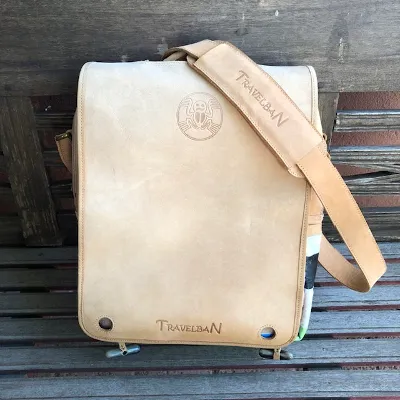
A new adventure: Kruger EveryDay Carry
Although not immediately a success, it was the beginning of a new adventure: Mathias’ own webshop Kruger EveryDay Carry. “I saw on social media that there was a subculture with people making bracelets of paracord for fun. So I started to learn this myself and realised that this was way more interesting than bags if you want to make money.”
“My brother is an outdoors guy. He told me: ‘Mathias, you should look into the EDC concept: EveryDay Carry.’ So I did and I found out that everything I liked, namely paracord, knives, hanks and coins, came together under this concept. This was so appealing to me that I developed it into my own brand. And the products in my webshop that I love the most are the products that I have designed and developed myself.”
“Because of paracord, I also got into leather and metalworking. I did a silversmith course, so I could make silver pieces. For example, the tags on my website are all handmade by me. I am also proud of a few of the beads that I made together with Covenant Gears, a brand from Indonesia.”
“The nicest thing about the DIY process is that you have raw material, you do something with it, and then it becomes a product. A few of those designs are completely mine, that is fun.”
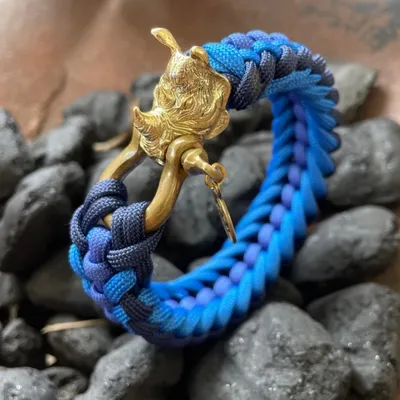
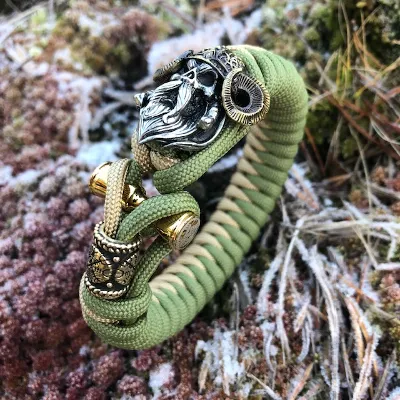
Working with paracord
“I’ve tried all sorts of paracord. I started as a big fan of Atwood 550 rope. The inside of this rope is made of nylon, but the mantle is polyester. Then I had a discussion with PullTightParacacord from the USA about what the best kind of paracord would be. He said that the best paracord must be one hundred percent nylon. That’s when I came across Paracord.eu.”
“I started working with nylon paracord and found that nylon cord works much better when making more complicated stuff, as it is softer than polyester. So nylon paracord 550 is basically the only cord I am using now. Of course, I sometimes use micro cord and nano cord as well, for stitching and decoration or for thinner bracelets.”
No shared love for paracord
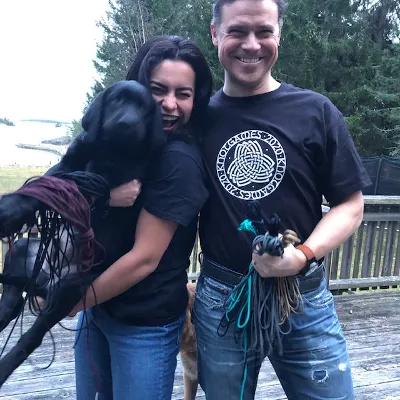 Mathias is from a creative family. On his father’s side, they are all ceramic artists. Mathias uses his creativity in paracord, but how about his daughters? “My youngest daughter is not into paracord. She thinks it is ridiculous and that I am a nerd. She said: ‘He either sits in front of the computer or he is tying knots.’ I showed her something that I made with paracord that I am proud of and I asked her if it was nice. She was like: ‘Yeah, sure, whatever’.” Mathias grins.
Mathias is from a creative family. On his father’s side, they are all ceramic artists. Mathias uses his creativity in paracord, but how about his daughters? “My youngest daughter is not into paracord. She thinks it is ridiculous and that I am a nerd. She said: ‘He either sits in front of the computer or he is tying knots.’ I showed her something that I made with paracord that I am proud of and I asked her if it was nice. She was like: ‘Yeah, sure, whatever’.” Mathias grins.
“At one point I tried to teach my older daughter some of the simple knots to get her to do some of the orders for me. It worked as long as I paid her a lot. So, it didn’t really pay off for me in the end.” He laughs out loud. “Sometimes when I am in a rush, my wife might help me with the packing and sorting of stuff, but it is basically just me. My family and I have other interests that we do share.”
Organising the Knotgames
In 2018, Mathias got asked to help organise the Knotgames. “Richard, a British guy from the brand Knotparacord, reached out to me. He said: ‘You’re a guy with good networks in this community, what do you think of organising some kind of competition?’”
“It was just an idea to create something fun. We started to throw around ideas and came up with a name and format. We did it all together: reaching out to sponsors, assuming all the costs and the shipments. Fortunately, we had a few main sponsors that stuck with us, that we could build on.”
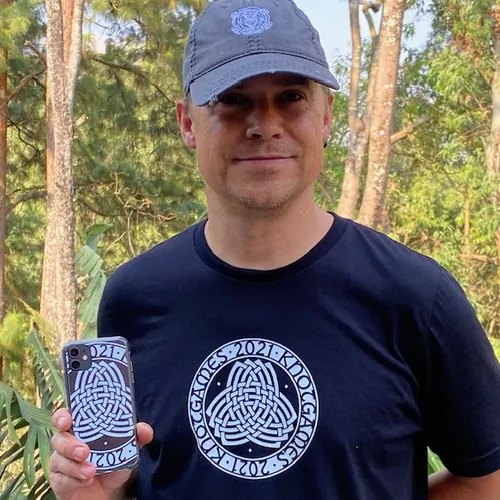
The number of participants expanded over the years. Not only the outdoor people participated, the pet community found their way in as well. “It was interesting to see that there was a whole group of paracorders that had no idea what was happening on our side of the table, the side of lanyards and bracelets. There was no communication between those two groups. This surprised me. We decided to devote one round specifically to the pets, which was very successful.”
After a few years Richard told Mathias that he did not have enough time to continue organising the Knotgames. Mathias coordinates it on his own ever since, but the entries are judged by a diverse group of approximately five jury members. “There have been jury members from Russia, Canada, the USA, The Netherlands, Germany, Indonesia, you name it. It is fantastic!” Mathias beams when he talks about working together with other people from the community. “When we judge the contributions there is a lot of discussion, and eventually we all agree on the winners.”
Decreased interest
“Last year was difficult. There were some rounds with a decreased interest, so I had to relaunch some of the rounds. We barely managed to get enough entries. I am thinking about what I should do differently this year.”
“When I look back at the previous years, I see that there is always a certain group that wins. They’re extremely good, so what should I do? I don’t want to exclude them, but it has become too difficult for amateurs to participate and that was never the intention.”
He is silent for a moment, thinking of solutions. “Maybe we should divide the game into certain levels, but how? The only way to do that is by letting participants classify themselves. Then you have to trust that people participate in the spirit of the game and not to win.”
“Let me know what you guys want, give me feedback!”
“It is not the world championship, but it is a happening. A fun event!”, Mathias says enthusiastically. “Everyone should be able to compete and to learn from one another. I am a social person and I want to build a community around paracord. My job, being a diplomat, is all about creating networks. Family, friends and relations are basically the only things that have value to me in life. You’ll only die happy if you have met a lot of interesting people, not if you’ve just worked a lot.”
Sixth edition of the Knotgames
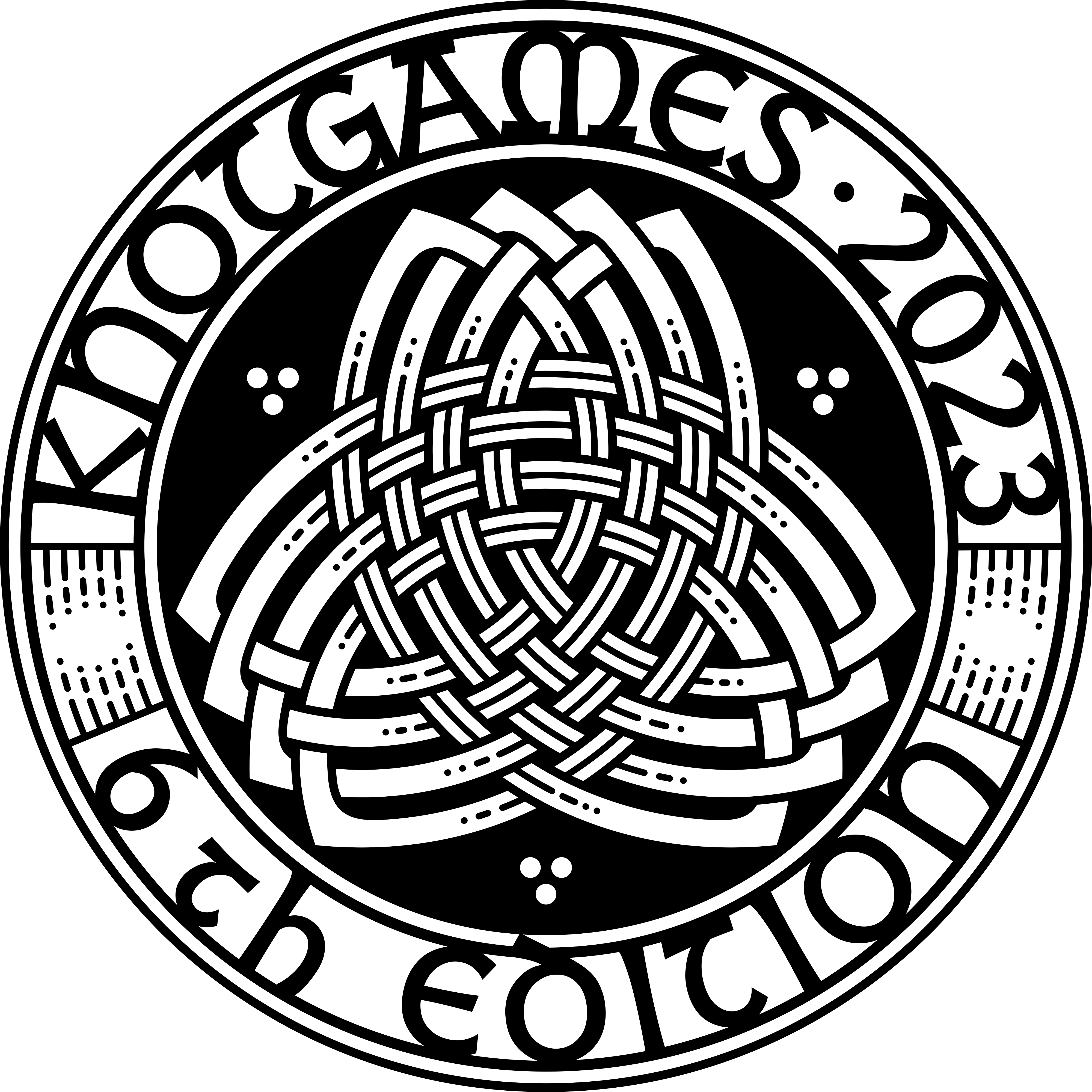 This autumn, Mathias will do his best to organise the sixth edition of the Knotgames. What can we expect? “I think we have to do something different this year, it must be more compact. I don’t think we are talking about three or four rounds, with three or four weeks for each round. That would be too drawn out and people will lose their interest. So I want to do something with a shorter time span. And maybe put more ‘boom’ in the event.” He moves his hands enthusiastically.
This autumn, Mathias will do his best to organise the sixth edition of the Knotgames. What can we expect? “I think we have to do something different this year, it must be more compact. I don’t think we are talking about three or four rounds, with three or four weeks for each round. That would be too drawn out and people will lose their interest. So I want to do something with a shorter time span. And maybe put more ‘boom’ in the event.” He moves his hands enthusiastically.
“I would like to say to the paracord community that I am open to ideas. Every year I ask myself the question: should I do it again? Is there an interest? Let me know what you guys want, give me feedback! We will not survive when the paracord community doesn’t like it. It is a community event, I really enjoy the interaction with the audience. How do I spread the word? Please help me out.”
Follow the Knotgames and Kruger EveryDay Carry on Instagram and take a look at the KrugerEDC webshop. You can also support the Knotgames by making a donation.
